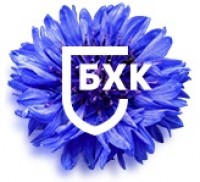
In response to the filing of charges against and the house arrest of Volha Zavadskaya in Brest (charged under Part 2 of Article 339 of the Criminal Code), and the sentencing to one month of imprisonment of Mikhail Berkas in Orša (charged under Article 341 of the Criminal Code), we, representatives of the Belarusian human rights community, note the following.
By the decision of an investigator at the Brest inter-district department of the Investigative Committee of February 17, 2021, Volha Zavadskaya was charged under Part 2 of Art. 339 of the Criminal Code (hooliganism). The woman was placed under house arrest.
According to the charge, on October 23, 2020, Zavadskaya, together with several other persons, made an effigy, which was later “displayed in public as the President of the Republic of Belarus.” The effigy bore two sheets of paper on which an unidentified person wrote, “He stole votes” and “He convicted the innocent”. It was then hung on a tree outside Brest. Thus, according to the investigation, Zavadskaya committed a crime under Part 2 of Art. 339 of the Criminal Code (hooliganism), i.e. intentional actions committed by a group of persons grossly violating public order, expressing clear disrespect for society and characterized by extreme cynicism.
The essence of the actions, the contents of the slogans, as well as the appearance of the effigy, in our opinion, suggest their protest motivation. It is obvious that the purpose of this act was expressing protest and disagreement with the falsification of the presidential election and the current situation in the country in the post-election period.
We believe that this form of expression falls under the protection of the International Covenant on Civil and Political Rights and has nothing to do with the charges.
In accordance with Art. 19 of the Covenant, everyone shall have the right to freedom of expression; this right shall include freedom to seek, receive and impart information and ideas of all kinds, regardless of frontiers, either orally, in writing or in print, in the form of art, or through any other media of his choice. The exercise of this right carries with it special duties and responsibilities. It may therefore be subject to certain restrictions, but these shall only be such as are provided by law and are necessary: (a) for respect of the rights or reputations of others; (b) for the protection of national security or of public order (ordre public), or of public health or morals.
The accused did not encroach on sacred or historical and cultural values. Nor did she destroy them. The slogans themselves did not contain obscene language or language of hostility and hatred on the grounds of nationality, race, religion or social origin and other characteristics.
Therefore, these actions cannot be qualified as hooliganism.
On March 24, 2021, Mikhail Berkas was sentenced by the Court of Orša district to one month of imprisonment under Art. 341 of the Criminal Code (desecration of buildings and damage to property).
Under to the charges, Mikhail Berkas painted several graffiti (“Long Live Belarus”, “3%”, etc.) on buildings in the Zachodniaja district of Orša. In particular, the protest graffiti were painted on a store, a tobacco kiosk, a nursing home, garbage cans, and some other facilities in the city. According to the investigation, the actions damaged the objects, which resulted in “reduction of their aesthetic characteristics by damaging the protective and decorative surfacing” and “caused material damage to their owners in the amount of 583 rubles 57 kopecks.”
As suggested by the contents of the graffiti, they were of purely protest nature and constituted an expression of the author’s opinion on socio-political events in the country and were not cynical or insulting. Nor did they call for violence and did not incite hostility on any grounds.
In this regard, we once again stress that in the context of the recent socio-political events, including the post-election protests, the motives of the graffiti were expressing opinions on these socially important topics.
The acts cannot be viewed as desecration of buildings with cynical graffiti and accordingly cannot be qualified under Art. 341 of the Criminal Code.
We believe that this form of expression falls under the protection of the International Covenant on Civil and Political Rights and has nothing to do with the charges.
The graffiti could not and did not lead to the significant damage or destruction of structures, and the material damage from such inscriptions was clearly symbolic.
In this context, we consider the arrest and imprisonment of Volha Zavadskaya and Mikhail Berkas to be politically motivated. Volha Zavadskaya and Mikhail Berkas are therefore political prisoners in accordance with paragraph 3.1 (a) of the Guidelines on the Definition of Political Prisoners.
In this regard, we, representatives of human rights organizations in Belarus, call to:
- immediately and unconditionally release Volha Zavadskaya and Mikhail Berkas from custody and terminate their criminal prosecution;
- immediately release all political prisoners and put an end to political repression in the country.
Human Rights Center "Viasna"
Legal Initiative
Human Constanta
Center for Legal Transformation “Lawtrend”
FORB Initiative
Belarusian Helsinki Committee
